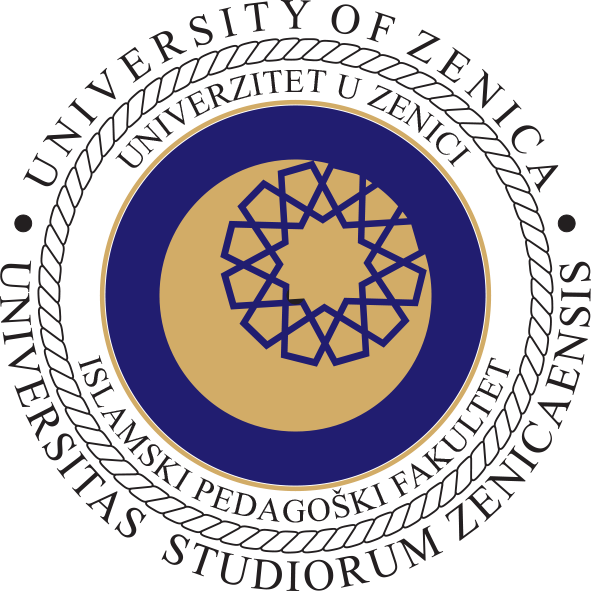VALIDACIJA UPITNIKA KVALITETA INTEGRIRANOSTI PREDMETNOG U ŠKOLSKI KURIKULUM
The aim of this study was to validate the questionnaire of the quality of integration of a subject into the school curriculum. For this purpose, 200 teachers of Religious education and 200 teachers of other elementary school subjects were examined in a survey on the quality of integration of a subject into the school curriculum, and the content of ...
By Izet Pehlić, Anela Hasanagić, Emina Grabus
PRIKAZ REŽIMA PRELAZA U ODRASLU DOB
Global changes in social dynamics which have affected countries of the European Union in the last decades of the 20th century, have resulted in the need to study phenomena such as biographies, life flows and regimes of transition. Differentiated social structure, institutional frameworks, cultural values and political activities provide different r...
By Elma Begagić
KUR’ANSKA PERSPEKTIVA (DIS)POZICIJSKOG KARAKTERA ODGAJATELJEVOG AUTORITETA
In order to light up certain micropedagogical relations in this paper, we try to look at education through the prism of the peculiarities of interaction of essential factors of the educational process - educator and educatee. In doing so, the focus of our interest is on the explanation of educator’s obligations arising from the legality of interper...
By Muamer Neimarlija
MUŠKO-ŽENSKI ODNOSI KROZ POSLOVICE U B/H/S I ENGLESKOM JEZIKU
The male-female relationship constitutes an eternal enigma analysed in different ways throughout the history. The status of women through the ages has been significantly different from the status of men; the domestic domain of their home has been regarded as a female space, while the public life has been reserved for males. Women have been invisibl...
By Vildana Dubravac
DIMENZIJE ONTOLOŠKOG ZASNIVANJA TRADICIONALNE ARHITEKTURE
In architecture, human need to be a man is most vividly realized, but his desire for beauty, perfection and universality is projected as well. It encompasses his thoughts about the Supreme, himself and the universe, and expresses “an objective identity of a concept and things”. This paper develops a discourse on architecture as a universal form of ...
By Nusret Isanović
UTJECAJ ŠAZZ – NEAUTENTIČ NIH KIRA’ETA NA IZVOĐENJE ŠERIJATSKIH PROPISA
Qira’ats are not just strict, patterned forms of reading and writing of the Qur’anic text. On the contrary, qira’ats play an important role in studying the semantics of the Qur’an, its words and expressions. At the level of Islamic law, tafsir and qira’ats have played a decisive role in theoretical concretization of Shariah norms contained in the t...
By Safet Husejnović
PRIVRŽENOST I ŽUDNJA ZA DOMOM KOD INOZEMNIH STUDENATA
Homesickness is a common feeling for most students, especially those who experience the separation from their own homes for the first time. It is known that some personality traits are associated with adjusting to the new situation, and when we talk about the separation from home and adapting to the new environment, we assume that one of the import...
By Anela Hasanagić, Seniha Busra Asici
RAZLIKE U INTENZITETU STRESA I STRATEGIJAMA SUOČAVANJA SA STRESOM KOD DEMINERA S OBZIROM NA RADNO MJESTO I DUŽINU RADNOG STAŽA
The main objective of this study was to determine the difference in the intensity of stress and coping strategies of deminers with regard to the position and length of service. The study included 216 participants, or deminers of Armed Forces in BiH of varying lengths of service, which include deminers of various demining teams of BiH Armed Forces, ...
By Aldin Goletić
KOLEKTIVNO-NEBODERSKO STANOVANJE: STANARSKA PERCEPCIJA SIGURNOSTI U NEBODERIMA HRASNO U SARAJEVU
Very little literature is devoted to the effects of social risks in the social organization of the skyscrapers that are consistently associated with social disorganization. Some studies prove that crime, for example, as an aspect of social disorganization, strengthens the energy of a community, while others show that it leads to fragmentation. Draw...
By Alisabri Šabani
RASPRAVA S HARIDŽIJAMA I ŠIIJAMA U HANEFIJSKOM TEFSIRU AHKĀM AL-QUR’ĀN OD AL-DŽASSASA
Abu Bakr al-Razi al-Jassas holds a prominent position among the Islamic scholars in general and the scholars of the Hanafi school of Islamic law in particular. He wrote many works and is especially known by his tafsir Ahkām alQur’ān (Rules from the Qur’ān), an interpretation of the Noble Qur’ān with a particular emphasis on the verses related to ru...
By Safvet Halilović



